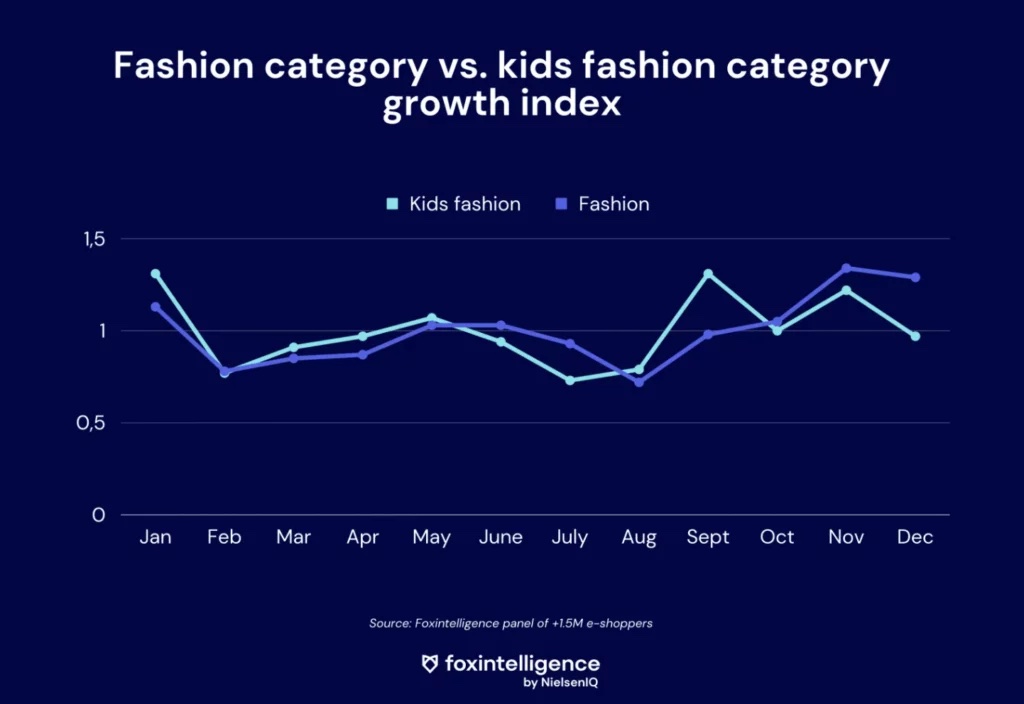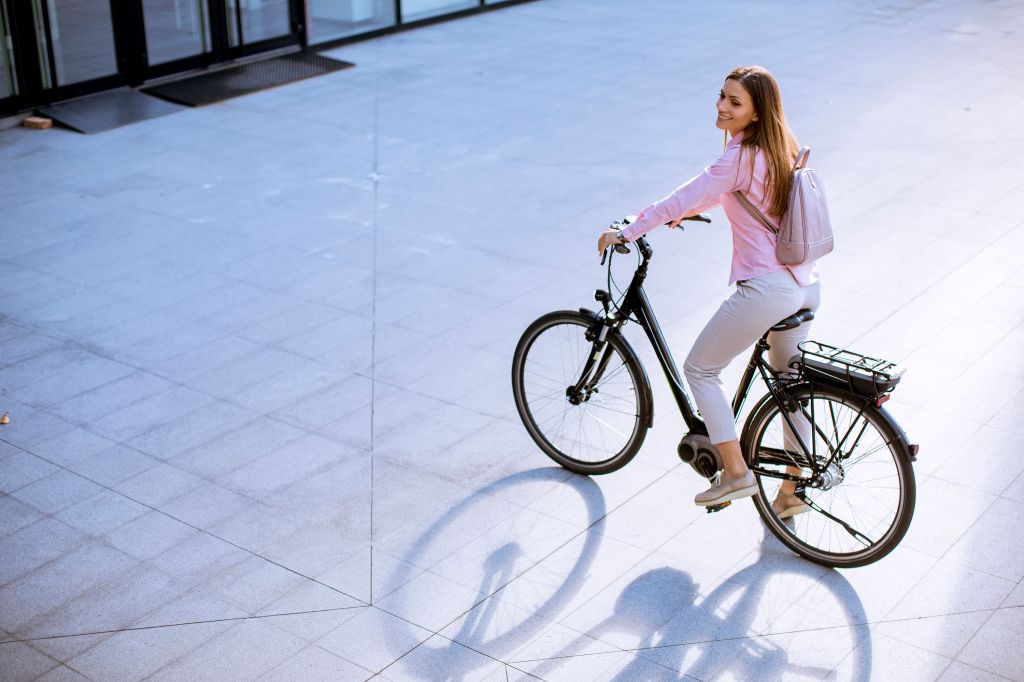Children’s Ready-to-Wear: A Thriving Market
The health crisis has had a lasting impact on the consumption habits of the French, especially concerning the clothing market. Purchase typologies have changed – impulse buying is becoming less common in favor of planned purchases. The awareness of the need to consume differently has firmly taken root. As a result, retailers must confront the new consumption trend: deconsumption.
Between 2019 and 2022, the clothing market lost nearly 2 percentage points in the women’s category. In the men’s category, it lost 0.6 points.
Only the children’s category is on the rise, gaining 0.2 points over 3 years.
Marketplace, Second Hand, and Diversification of Offer: Brands Make Their Mark in the Thriving Children’s Fashion Market
Second Hand in the Children’s Fashion Sector
Awareness of the need for responsible consumption, coupled with inflation, has driven consumers towards second-hand products. This context makes second-hand purchases a way to address environmental and economic concerns across all purchases.
However, for the children’s ready-to-wear sector, buying second-hand also aligns with the frequent need for product renewal. Brands have realized this, and initiatives are flourishing.
Some brands in the children’s clothing market have opened their resale platforms.
Petit Bateau was one of the first brands to enter the market: it has been offering the sale of second-hand clothing since 2017. Today, it is stepping up its game. In addition to the option to buy second-hand in stores and on the brand’s website, 22 boutiques in France offer clothing collection. At the same time, the brand has also ventured into clothing rental, an ideal format for children’s clothing, which is typically purchased to be worn for only a few months.
When economic interest and ecological concern align, while strengthening the brand image.
Launching a Marketplace to Expand the Offer
Vertbaudet has also entered the second-hand market through its website, (re)vertbaudet. To celebrate its 60th anniversary, the brand is opening a marketplace in 2023. This is a solution to expand into complementary categories such as hygiene and skincare products and offer a broader range to its customers.
Engaged Alternatives
Okaïdi has launched its platform, idkids.community. The Idkids group gathers its brands (Okaïdi, Oxybul, Catimini, Jacadi…) on a single website that will become a marketplace to generate more traffic and increase its conversion rate. Moreover, Idkids’ loyalty program is common to all brands within the group.
On the other hand, Orchestra has revamped its business model. In exchange for a €30 membership fee, Club Orchestra members receive a 50% discount on all collections.
Broadening the Target Audience
Another strategy to gain market share is to broaden the target audience. Jacadi, Bonpoint, and Petit Bateau now offer collections for teenagers and young adults.
Bonpoint has a women’s collection – a way to pique the interest of mothers accustomed to buying the brand’s clothing for their children.

Seasonal Sales Trends in Online Children’s Ready-to-Wear: Back-to-School is a Key Period
Online sales of children’s ready-to-wear closely follow the overall fashion sales curve, except in September: during the back-to-school period, the gap widens, and children’s clothing sales soar.
Retailers highlight “Back-to-School Collections.” On Vertbaudet’s website, a new filter is even offered: “Back to Nursery,” “Back to Preschool,” “Back to Primary School.”




